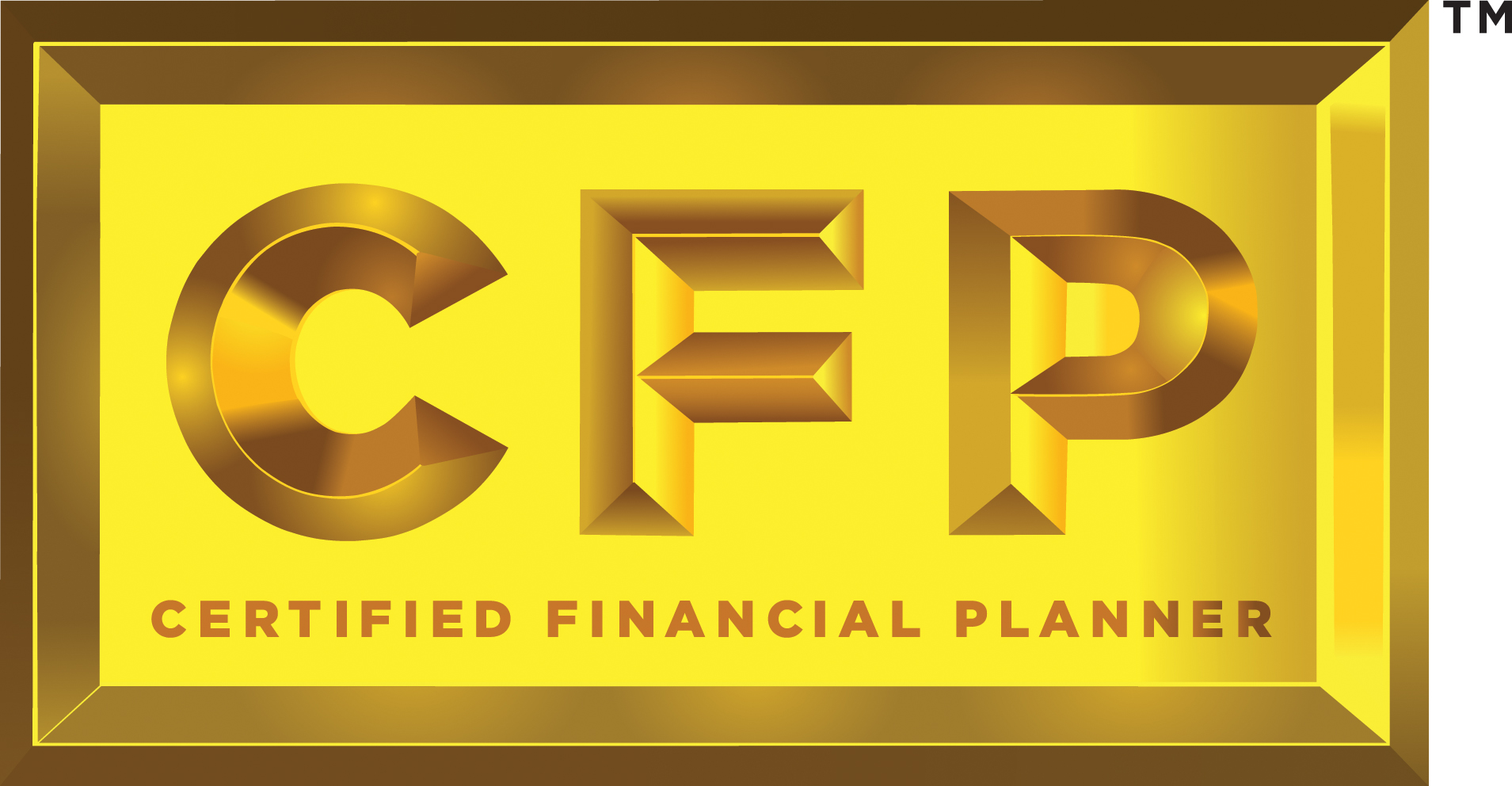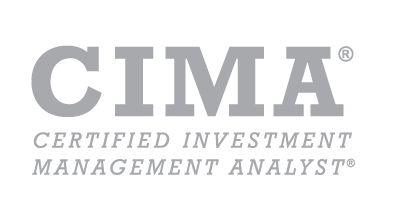Our Credentials
In recent years we have seen an explosion of “credential” programs, which can be confusing to individuals outside of the finance industry. They are meant to convey a level of education and expertise but, most of these credential programs contain little rigor and do not certify a high degree of competency.
The credentials we have obtained and display, all required significant study and require an ongoing demonstration of proficiency. The programs were undertaken for the purpose of establishing a high level of competency in specific fields. They were not obtained for marketing purposes.
Below is a description of what our credentials mean and the requirements needed to obtain and maintain these designations.
MBA: Master of Business Administration
The program is a master’s degree in business administration, which attracts people from a wide range of academic disciplines. Accreditation bodies exist specifically for MBA programs to ensure consistency and quality of graduate business education. The program bases admission on the Graduate Management Admission Test (GMAT), significant work experience, academic transcripts, essays, references or letters of recommendation, and personal interviews.
MBA programs expose students to a variety of subjects, including economics, organizational behavior, marketing, accounting, finance, strategy, operations management, international business, information technology management, supply chain management, project management, government policy, and ethics. Students traditionally study a wide breadth of courses in the program’s first year, then pursue a specialized curriculum in the second year.
CFP®: Certified Financial Planner®
The Certified Financial Planner (CFP) designation is a certification mark for financial planners conferred by the Certified Financial Planner Board of Standards. To receive authorization to use the designation, the candidate must meet education, examination, experience and ethics requirements.
To earn a CFP designation, candidates must meet several requirements, the first of which is the educational requirement. Students must master a list of nearly 100 topics on integrated financial planning. The topics cover major planning areas such as:
- General principles of finance and financial planning
- Insurance planning
- Employee Benefits planning
- Investment and Securities planning
- State and Federal Income Tax planning
- Estate Tax, Gift Tax, and Transfer Tax planning
- Asset Protection planning
- Retirement planning
- Estate planning
Once students have passed the education requirements for each major topic they must pass a comprehensive 10 hour examination. Certificants are required to adhere to the CFP Board Code of Ethics and Professional Responsibility and to the Financial Planning Practice Standards. The CFP Board has the right to enforce them through its Disciplinary Rules and Procedures. To maintain certification, license holders are also required to complete at least 30 hours of specific qualified Continuing Professional Education (CPE) every two years.
CPA: Certified Public Accountant
A certified public accountant, or CPA, is a person who has passed the challenging CPA Exam and has been licensed by one of the 50 U.S. states (or one of five other jurisdictions). A CPA is different than an accountant. In fact, anyone who does any type of accounting function (even someone without a degree) can call themselves an accountant. A certified public accountant (CPA), however, is someone who has earned a professional designation through a combination of education, experience and licensing. In addition to completing a program of study in accounting, and acquiring professional work experience in public accounting, a CPA candidate also must sit for and pass the Uniform CPA Examination. The exam itself is developed and graded by the American Institute of CPAs (AICPA). Licensing, however, is done by state, district and county Boards of Accountancy. The CPA designation is granted by the American Institute of Certified Public Accountants in order to maintain industry-wide, professional standards. A CPA designation is a certification of expertise in the field of accounting. Only a CPA can provide an opinion to the public regarding publicly distributed financial statements.
CLU®: Chartered Life Underwriter®
Offered by The American College, the prestigious Chartered Life Underwriter® (CLU®) designation is the global benchmark of expertise in the areas of life insurance and business and estate planning.
For more than 80 years, CLU® accreditation has been regarded as a superior mark of educational achievement and professional excellence. Certificants are required to maintain strict Code of Ethics standards and must complete at least 30 hours of specific qualified Continuing Professional Education (CPE) every two years.
CIMA®: Certified Investment Management Analyst®
The educational program is offered through University of Pennsylvania, Wharton School. The certification program is administered by the Investment Management Consultants Association (IMCA) and it represents the only advanced designation designed specifically for investment consultants. Certified Investment Management Analyst professionals provide objective investment advice and guidance to both individuals and institutions.
The CIMA professional integrates a complex body of investment knowledge and applies it systematically and ethically to assist clients in making prudent investment decisions. Today, the industry recognizes the CIMA designation as the highest standard in consulting expertise. The CIMA designation belongs to an elite few in the investment profession. It represents the highest level of credibility, integrity, and knowledge. The program requires intensive course work presented by some of the best professors in the world at Wharton Business School. Course work includes the following subjects:
Investment Policy
Covers the objectives of an investment policy as well as the setting of policy guidelines, and includes the various factors affecting a portfolio’s performance along with the means of determining whether the manager has provided added value.
Asset Allocation
Employs the concept of "Efficient Frontiers" to analyze the means by which a portfolio’s asset allocation can be adjusted for the appropriate risk/return levels to maximize efficiency. Further exploration of diversification and correlation, along with systematic and diversifiable risk, single and multiple index models, and equilibrium models.
Risk Management
Explores the objective and subjective measures of risk, and the importance of establishing performance goals that consider risk, as well as return. Also reviews the quantitative measures of standard deviation, beta, covariance, and correlation as measures of volatility and risk, along with newer concepts such as downside risk.
Beta Coefficients
Looks at the risk/return relationship in the marketplace by utilizing the Capital Asset Pricing Model and the Security Market Line. In addition, it offers a thorough review of the beta coefficient as a measure of risk and discusses estimation of the beta of various funds, securities, and the market.
Historical Returns
Places "real" returns into historical perspective through a discussion of risk/return trade-offs and the benefits of diversification.
Duration and Convexity
Covers all aspects of measuring and evaluation of fixed income securities, as well as their application to portfolios.
International Financial Markets
Highlights returns in foreign markets, international diversification, and currency hedging strategies. In addition, reviews the prospects for the U.S. economy in international competition.
Measuring Return on a Portfolio
Begins with a review of interest rate theory (time value of money and compound interest) and stresses the need to analyze the investment process to emphasize the importance of active strategies. Also covers time-weighted and value-weighted returns as illustrated by the effects of contributions and withdrawals on a fund’s value.
Performance Measurement and Attribution
Analyzes the performance evaluation procedure in three steps:
1. determination of basic asset allocation,
2. evaluation of asset class weight selections, and
3. evaluation of specific security selections within each class.
Due Diligence and Manager Selection
Examines both quantitative and qualitative issues relating to due diligence work on money managers, and discusses such aspects as risk-adjusted performance analysis, benchmark choices, and appropriate risk measures. Discusses qualitative issues including size and structure, as well as the personnel and investment philosophy of a firm.
Legal and Regulatory Environment
Reviews fiduciary liabilities and the responsibilities of both the trustee and the consultant. Discusses prohibited transactions and ethics, along with examination of the IMCA Code of Professional Responsibility and the relationship of the "Prudent Man Rule" to everyday consulting.
Ethics
Examines case studies pertinent to professional ethics in today’s business environment, and presents the influences of policies and practices.
Certificants are required to meet IMCA’s ongoing competency requirements of continuing education (CE), including 40 hours of Continuing Education every two years, and by adhering to IMCA’s Code of Professional Responsibility and Standards of Practice.




